第51章 The Revival of Antiquity Introductory (1)
Now that this point in our historical view of Italian civilization has been reached, it is time to speak of the influence of antiquity, the 'new birth' of which has been one-sidedly chosen as the name to sum up the whole period.The conditions which have been hitherto described would have sufficed, apart from antiquity, to upturn and to mature the national mind; and most of the intellectual tendencies which yet remain to be noticed would be conceivable without it.But both what has gone before and what we have still to discuss are colored in a thousand ways by the influence of the ancient world; and though the essence of the phenomena might still have been the same without the classical revival, it is only with and through this revival that they are actually manifested to us.The Renaissance would not have been the process of world-wide significance which it is, if its elements could be so easily separated from one another.We must insist upon it, as one of the chief propositions of this book, that it was not the revival of antiquity alone, but its union with the genius of the Italian people, which achieved the conquest of the western world.The amount of independence which the national spirit maintained in this union varied according to circumstances.In the modern Latin literature of the period, it is very small, while in the visual arts, as well as in other spheres, it is remarkably great; and hence the alliance between two distant epochs in the civilization of the same people, because concluded on equal terms, proved justifiable and fruitful.The rest of Europe was free either to repel or else partly or wholly to accept the mighty impulse which came forth from Italy.Where the latter was the case we may as well be spared the complaints over the early decay of mediaeval faith and civilization.Had these been strong enough to hold their ground, they would be alive to this day.If those elegiac natures which long to see them return could pass but one hour in the midst of them, they would gasp to be back in modern air.That in a great historical process of this kind flowers of exquisite beauty may perish, without being made immortal in poetry or tradition, is undoubtedly true; nevertheless, we cannot wish the process undone.The general result of it consists in this--that by the side of the Church which had hitherto held the countries of the West together (though it was unable to do so much longer) there arose a new spiritual influence which, spreading itself abroad from Italy, became the breath of life for all the more instructed minds in Europe.The worst that can be said of the movement is, that it was antipopular, that through it Europe became for the first time sharply divided into the cultivated and uncultivated classes.The reproach will appear groundless when we reflect that even now the fact, though clearly recognized, cannot be altered.The separation, too, is by no means so cruel and absolute in Italy as elsewhere.The most artistic of her poets, Tasso, is in the hands of even the poorest.
The civilization of Greece and Rome, which, ever since the fourteenth century, obtained so powerful a hold on Italian life, as the source and basis of culture, as the object and ideal of existence, partly also as an avowed reaction against preceding tendencies--this civilization had long been exerting a partial influence on mediaeval Europe, even beyond the boundaries of Italy.The culture of which Charlemagne was a representative was, in face of the barbarism of the seventh and eighth centuries, essentially a Renaissance, and could appear under no other form.Just as in the Romanesque architecture of the North, beside the general outlines inherited from antiquity, remarkable direct imitations of the antique also occur, so too monastic scholarship had not only gradually absorbed an immense mass of materials from Roman writers, but the style of it, from the days of Einhard onwards, shows traces of conscious imitation.
But the resuscitation of antiquity took a different form in Italy from that which it assumed in the North.The wave of barbarism had scarcely gone by before the people, in whom the former life was but half effaced, showed a consciousness of its past and a wish to reproduce it.
Elsewhere in Europe men deliberately and with reflection borrowed this or the other element of classical civilization; in Italy the sympathies both of the learned and of the people were naturally engaged on the side of antiquity as a whole, which stood to them as a symbol of past greatness.The Latin language, too, was easy to an Italian, and the numerous monuments and documents in which the country abounded facilitated a return to the past.With this tendency other elements--the popular character which time had now greatly modified, the political institutions imported by the Lombards from Germany, chivalry and other northern forms of civilization, and the influence of religion and the Church--combined to produce the modern Italian spirit, which was destined to serve as the model and ideal for the whole western world.